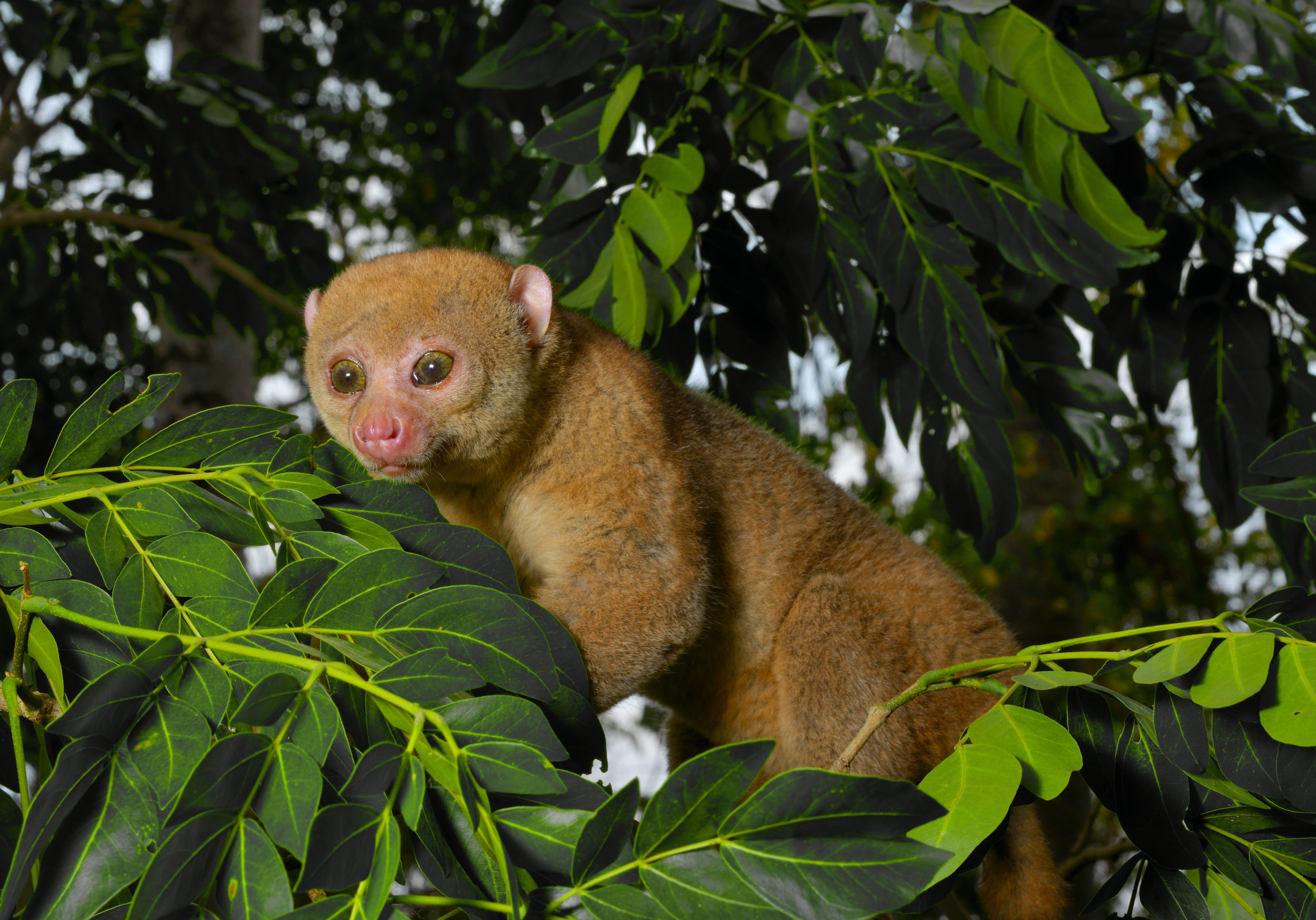Potto is a small African animal that lives in trees. It is nocturnal (active at night). The potto is a primate—that is, it belongs to the order of mammals that includes monkeys, apes, and human beings. However, the potto looks more like a sloth than like a monkey or ape.
Pottos have short, thick, brown or gray fur. They have large eyes, small ears, and a short tail. Pottos are 12 to 15 inches (30 to 39 centimeters) long. Most pottos weigh 1 1/2 to 2 pounds (700 to 900 grams). The largest potto, the central potto, may weigh 3 1/2 pounds (1.6 kilograms).
A potto has strong hands that help it move slowly and carefully through the trees. But the potto’s index finger is a mere stub. It has no nail or joints. On the back of the potto’s neck, the tips of its vertebrae (backbones) project through the skin. This partially exposed backbone helps the potto scare away predators. When a potto feels threatened, it lowers its head and raises its backbone to make itself look larger. It growls and lunges at its attacker.
Pottos eat fruit and other plant parts, gum (thick tree sap), and insects. They sometimes eat small animals, such as bats and birds. Civets, owls, and snakes eat pottos. In addition, people sometimes eat pottos. But people eat them mainly as bushmeat (locally hunted meat). Pottos are not sold widely as food.
A potto gives birth to one baby at a time. The mother leaves it on a tree branch while she looks for food. When the baby is about a week old, it is strong enough to hold on to the mother as she moves around. When the baby is three to four months old, it can move around on its own. Pottos leave their mothers when they are six to eight months old. Researchers think that male pottos do not take care of their offspring in the wild. But some male pottos living in captivity do take care of babies.
Animals called angwantibos are closely related to pottos. The name angwantibo comes from the Efik language, which is spoken in Nigeria. Angwantibos resemble pottos, but they are smaller. They weigh 5 to 11 ounces (150 to 325 grams). An angwantibo’s index finger is even shorter than a potto’s. Its tail is also shorter. When an angwantibo is threatened, it tucks its head under its arm and bites its attacker.

